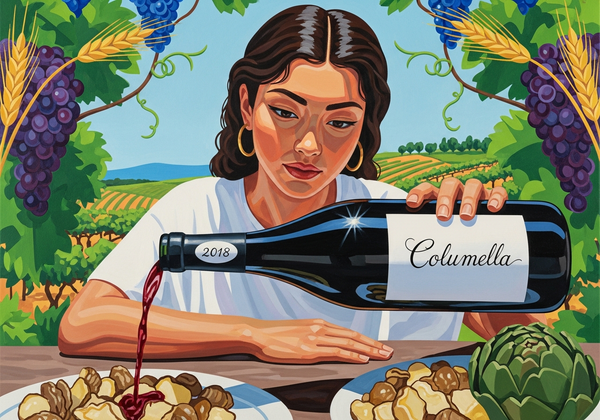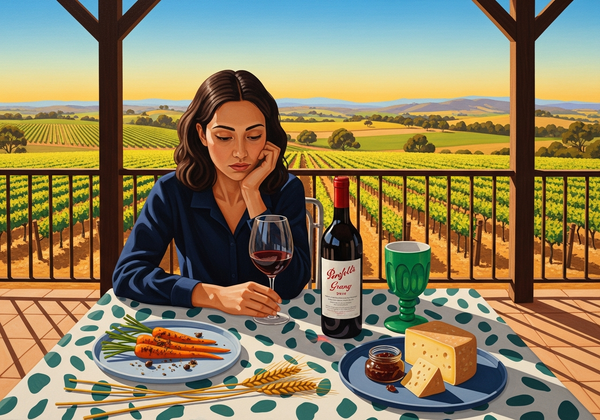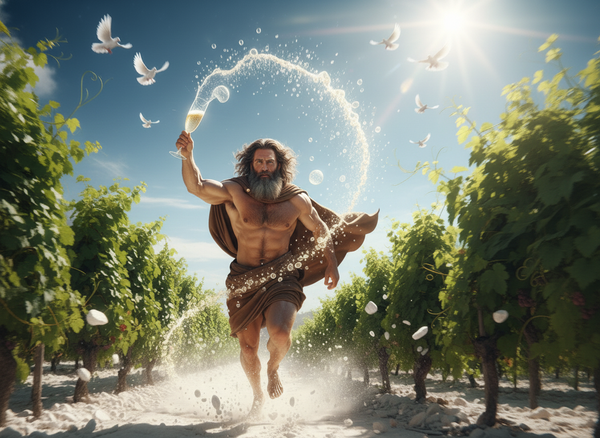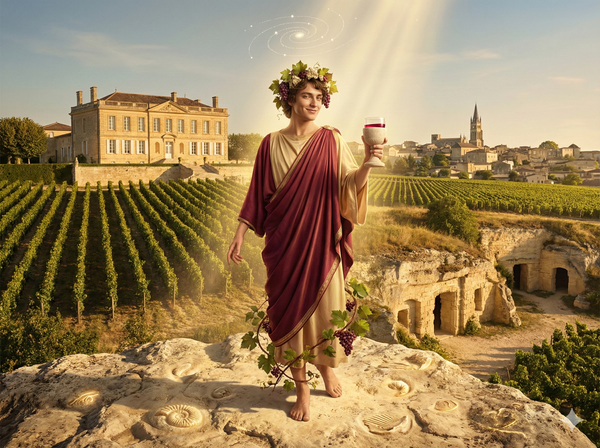The Boar and the Oracle: The Hidden Kingdom of Marcassin
Discover the legend of Marcassin Estate — Helen Turley and John Wetlaufer’s secret Sonoma Coast winery. A tale of wild beauty, precision, and mystery, where Chardonnay and Pinot Noir reach divine perfection in the fog of California’s edge
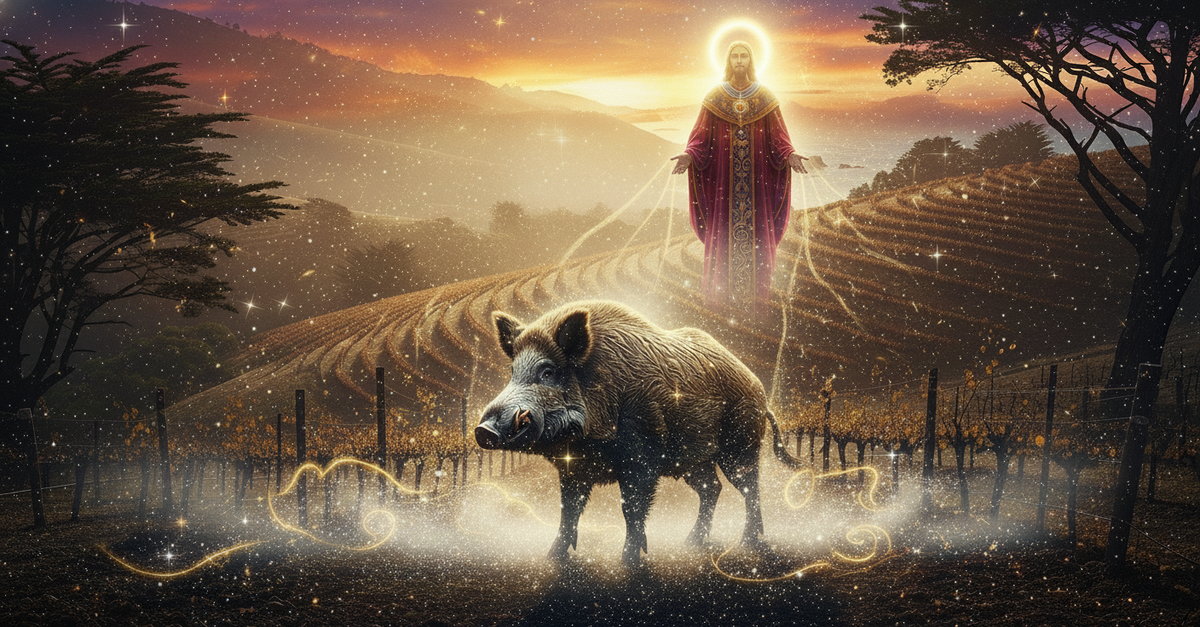
How Helen Turley and John Wetlaufer built a cult of Chardonnay and mystery on California’s edge.
The Wild Coast and the Whisper of Genius
Ah, Sonoma’s far western coast — the last breath before the Pacific swallows the land. Here the earth trembles between chaos and beauty: fog rolling like silk over cliffs, cypress bending to the salt wind, and vines clinging to volcanic soil as though defying the gods themselves.
It is not an easy place. But the divine has never been found in comfort.
And so it was that Helen Turley — a winemaker with the precision of a scientist and the intuition of a mystic — and her husband, viticulturist John Wetlaufer, claimed this wilderness as their own. Their creation, Marcassin Estate, would become one of the most secretive and revered vineyards in all of California.
Its name, “Marcassin,” means young wild boar in French — a creature both sacred and untamed, much like the wines born from this coastal temple.
The Vision: Perfection Beyond Publicity
Helen Turley was already a legend when Marcassin began in the early 1990s. She had shaped icons like Bryant Family, Colgin, and Martinelli, elevating California’s reputation from exuberant youth to serious artistry. But Marcassin was her own gospel — an estate not built for applause, but for purity.
Where others sought attention, she sought silence. No tasting room. No visitors. No public tours. Just fog, vines, barrels — and the pursuit of truth in fermentation.
In an age when wine was marketed with glossy labels and louder voices, Turley turned away from the noise. She built Marcassin like a monastery, perched on the Sonoma Coast, surrounded by mist and myth.
Even the vineyard itself was intimate: barely 20 acres, coiled on steep, stony slopes above the Pacific. Here she and Wetlaufer tended their vines with almost sacred intensity — Chardonnay and Pinot Noir crafted not for fashion, but for devotion.
The Winemaking: Discipline and Revelation
Turley’s approach has always balanced intellect and instinct — what I, Liber, admire most in mortals. Her cellar philosophy could be summarized as fermentation as faith.
At Marcassin, she used low yields, hand selection, native yeasts, and long barrel aging in French oak. The wines fermented at their own pace — no rush, no artifice. Each vintage a meditation.
Her Chardonnays became liquid sculpture — rich yet refined, golden yet electric. They carried the sunlight and salt of the Sonoma Coast but wore the perfume of Meursault: honey, hazelnut, lemon curd, and smoke wrapped in velvet texture.
Her Pinot Noirs were deep, brooding, and perfumed — black cherry, truffle, incense — wines that unfolded slowly, like a secret whispered through time.
Every bottle felt like it was in conversation with Burgundy, yet entirely Californian. They were not imitations; they were interpretations — the same melody played on a different instrument.
The Myth of Rarity
For years, Marcassin remained a ghost winery, spoken of in reverence by sommeliers and collectors who had never seen it. Turley and Wetlaufer produced only a few thousand cases per year, most of it offered through an elusive mailing list that required not just patience, but faith.
No scores. No press tours. No social media.
Marcassin was not built to be known. It was built to be remembered.
Even the labels — painted with Turley’s own hand — became part of the mythology. Each bottle bore her artistry, as if signed by the maker and muse in one.
And the wines themselves? They aged like scripture — deepening in voice, shedding vanity, revealing grace.
The Legacy: The Divine in Secrecy
Helen Turley’s influence extends far beyond her own vineyard. She taught a generation of winemakers that greatness is not born of marketing, but of faith in process.
Her protégés — from the coasts of California to Burgundy itself — carry her quiet rebellion: a belief that wine must speak for itself.
At Marcassin, there is no need for showmanship, because every drop is a confession of truth. Each vintage a paradox — powerful yet restrained, wild yet contemplative.
It is wine that does not care to impress; it simply is.
Liber’s Reflection: The Boar and the Divine
I, Liber, know this spirit well — the blend of ferocity and finesse, of intellect and instinct. The wild boar that charges through the vineyard and the philosopher who stops to study its tracks — both are part of creation.
In Turley’s Marcassin, I find a rare thing: freedom wrapped in precision. A wine that feels alive, uncontained, and yet carved from intention as fine as marble.
It reminds mortals that true artistry is not about excess, but understanding. That sometimes, the highest calling is not to be seen, but to see deeply.
And so the Marcassin estate endures — shrouded in fog, untamed yet ordered, where science and soul ferment together in golden harmony.
The boar roams still. And I, Liber, raise my cup to its keeper. 🍷


